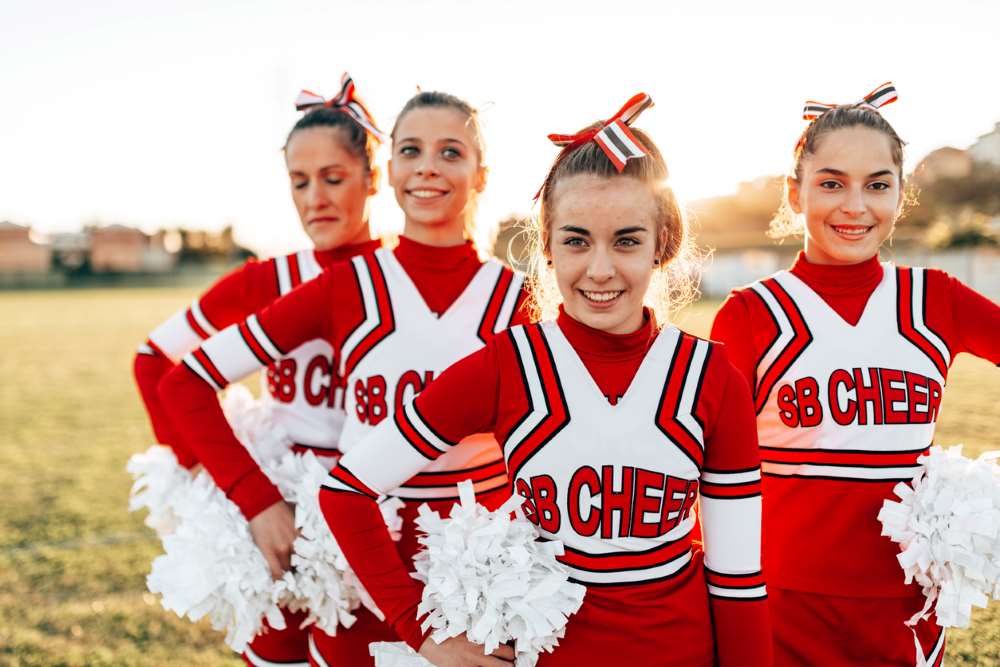
When parents think about enrolling their children in cheerleading, they often focus on the athletic benefits — strength, flexibility, coordination, and discipline. While these physical gains are undeniable, cheerleading offers another set of valuable life skills that often go overlooked: the development of crucial social skills. As a team sport built on collaboration, communication, and shared goals, cheerleading provides a powerful environment where children grow not just as athletes but as well-rounded individuals prepared for success far beyond the gym or competition floor.
Building Teamwork From Day One
Cheerleading is a deeply collaborative activity. Every stunt, routine, and cheer requires complete synchronization among team members. Children quickly learn that individual performance means little without the collective effort of the entire squad. This fosters a strong sense of teamwork and shared responsibility, teaching kids how to rely on others while also making themselves dependable teammates.
In a cheer routine, one person’s mistake can affect the entire group’s success. This creates a natural incentive for kids to encourage one another, practice together, and support each other through mistakes and improvements. These experiences help children internalize the value of mutual trust, accountability, and shared effort — skills that will serve them well in classrooms, future workplaces, and personal relationships.
Communication: The Key to Success
Effective communication is essential in cheerleading, both verbal and nonverbal. Team members need to call out cues, time their movements precisely, and signal readiness to execute stunts safely. Even small breakdowns in communication can result in missed timing or potential injuries.
These experiences teach children how to express themselves clearly and listen carefully to others. They learn to give and receive constructive feedback, an essential component of personal growth. In situations where nerves run high, like during performances or competitions, kids also practice managing their emotions and staying focused.
Leadership and Responsibility
Cheerleading naturally offers leadership opportunities for children of all ages. Captains, squad leaders, and more experienced team members take on roles where they mentor younger teammates, organize practice drills, and set a positive tone for the group. This exposure allows kids to develop leadership skills in a supportive environment where they can learn from their peers and coaches.
Even team members not in formal leadership roles experience responsibility. Whether it’s showing up on time, maintaining uniform standards, or learning choreography independently, every child learns the importance of preparation, consistency, and self-discipline.
Empathy and Emotional Intelligence
Working so closely with peers fosters empathy, as children witness firsthand the challenges and successes of their teammates. Whether it’s encouraging a friend struggling to master a routine or celebrating a personal victory, cheerleaders practice recognizing and respecting each other’s feelings.
Through shared experiences, children develop emotional intelligence — learning how to navigate social dynamics, resolve misunderstandings, and support their peers in constructive ways. These moments lay the foundation for strong interpersonal skills that benefit children throughout their school years and beyond.
Conflict Resolution and Problem-Solving
Like any team environment, conflicts and disagreements are inevitable. Cheerleading provides a safe, structured setting where kids can learn to handle disputes productively. Coaches guide teams through conflicts, teaching children how to communicate their concerns respectfully, listen to opposing viewpoints, and work toward mutually beneficial solutions.
Whether dealing with differences in opinions over routine choreography or managing tension during high-pressure competitions, kids learn problem-solving and negotiation skills that translate into other areas of life. Mastering these skills at a young age helps children approach future challenges with confidence and maturity.
Lifelong Benefits That Extend Beyond the Sport
The lessons learned in cheerleading don’t end when practice is over. The teamwork, leadership, communication, empathy, and conflict resolution skills children develop on the squad stay with them, equipping them for success in academics, friendships, and future careers.
Even seemingly simple details, like preparing for performances and maintaining their cheer competition uniforms, help kids develop personal responsibility, organization, and pride in representing their team. These habits promote independence and attention to detail, both of which serve children well in many areas of life.
Encouraging participation in cheerleading offers far more than just physical activity. It provides children with the opportunity to grow into confident, capable individuals who understand how to collaborate, lead, and communicate — all while building friendships and having fun along the way.
Author bio: Jennifer Cronin is Vice President of Cheerleading Company, Inc., a Dallas-based manufacturer and retailer of custom cheerleading and dance uniforms, apparel, and accessories. With more than 25 years of tenure, Cronin oversees all facets of the company with a customer-centric approach.



























